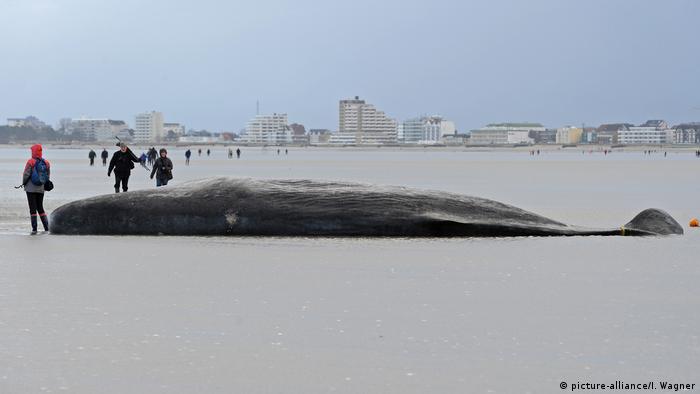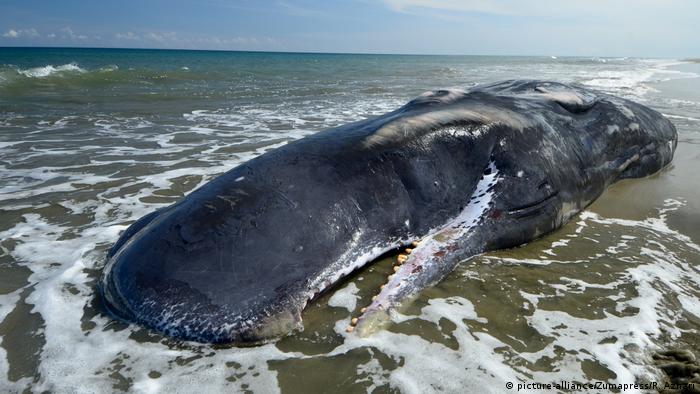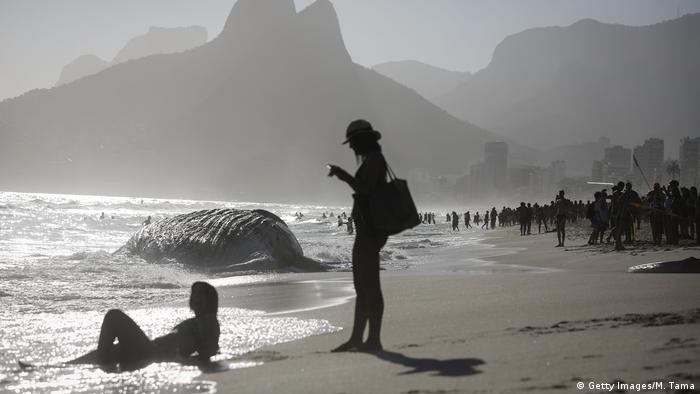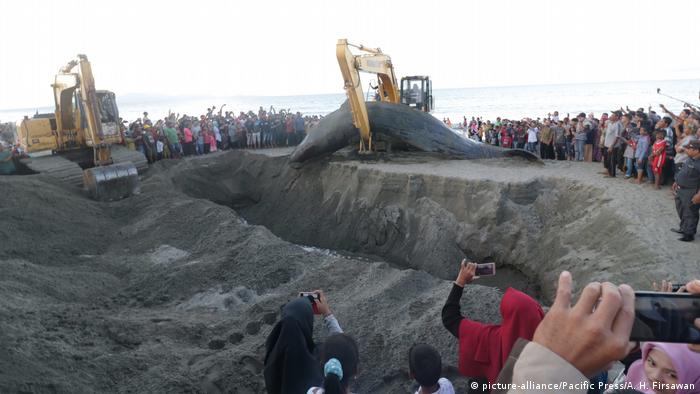Whales by sonar devices in a panic, they appear to be disoriented and stranded. Responsible also for the divers well-known decompression sickness, according to a new study.

Years ago, researchers at autopsy had vessels stranded whales gas bubbles in the blood and organs was found. In the worst case, the bubbles destroy tissues and cause bleeding, and the tissue cracks. The scientists suspected that the bubbles arise when the whales are startled, and then quickly from the depth arise. 21 experts have now presented in the “Royal Society Journal,” a study according to which, among other things, Cuvier’s beaked whales to decompression illness die.
“In the presence of the sonar you are stressed out and float away violently from the sound source, and change their diving patterns,” says Yara Bernaldo de Quiros, the main author of the study. She conducts research at the Institute for animal health at the University of Las Palmas de Gran Canaria. “The stress response overrides the diving response, allowing the animals to stick to accumulate the substance,” she added. “It’s like a shot of Adrenaline.”
Extended Dive Cycles
U.S. researchers had previously reported in 2017 in the journal Royal Society Open Science, that the 16 of them with transmitters equipped Cuvier’s beaked whales react strongly to sonar noise during military Exercises. To escape the noise of the sound waves, the whales no longer in the deep-dive phase, an average of 90 instead of 60 minutes.

Whales, such as this mighty sperm whale are actually perfect divers
The marine mammals are actually perfect divers can perceive by means of echolocation of prey or an enemy. During the immersion phase, the heart rate slows down, the blood circulation, the oxygen remains in the blood.
Connection between the maneuvers and Mass strandings
Above all, a kind of Sonar brings these whales out of balance: in the 1950s, for the detection of U-boats, developed in the mid-frequency active sonar (MFDS). It is used today in naval patrols and Exercises, and in particular of the United States and its NATO allies.
From about 1960 the ships began to send underwater signals in a range from about 5 Kilohertz (kHz). At the time, a Mass stranding of beaked whales began, especially in the Mediterranean sea. Between 1960 and 2004, 121 of these so-called “atypical” Mass stranding took place, of which at least 40 were temporally and spatially closely with the maneuvers.

Acoustic nightmare: especially military Sonar signals in the case of maneuvers to put whales massively
2002 stranded during a NATO exercise off the Canary Islands in just 36 hours, 14 whales. Externally, you can see nothing. They had a normal body weight and no skin changes or infections. But their veins were full of nitrogen gas bubbles and the bleeding had hurt your brain solid. The autopsy revealed further damage to other organs and to the spinal cord and the Central nervous system.
Prohibition of maneuvers in Walregionen required
Since 2004, Spain, the Navy has banned Exercises off the Canary Islands. “Until then, the Canary Islands were a Hotspot for this kind of “atypical” Beach” so the scientist Bernaldo de Quiros. “Since the Moratorium, nothing happened.”

No rescue possible: Beached sperm whale carcass on the North sea coast
The authors of the new study, called for similar bans in other regions, where endangered whales gather. The Cuvier Schnabelwal is up to seven feet tall and eat mainly squid and fish from the deep sea. The whale is classified on the Red list of endangered species of the world conservation Union ( IUCN) as “vulnerable”, and probably has a global Population of 5,000 to 7,000 animals.
Video 01:26 live Now 01:26 Min. Share
What is the Grönlandwale doing?
Send Facebook Twitter google+ Tumblr VZ Mr. Wong Xing Newsvine Digg
Permalink https://p.dw.com/p/2oUlB
What is the Grönlandwale doing?





